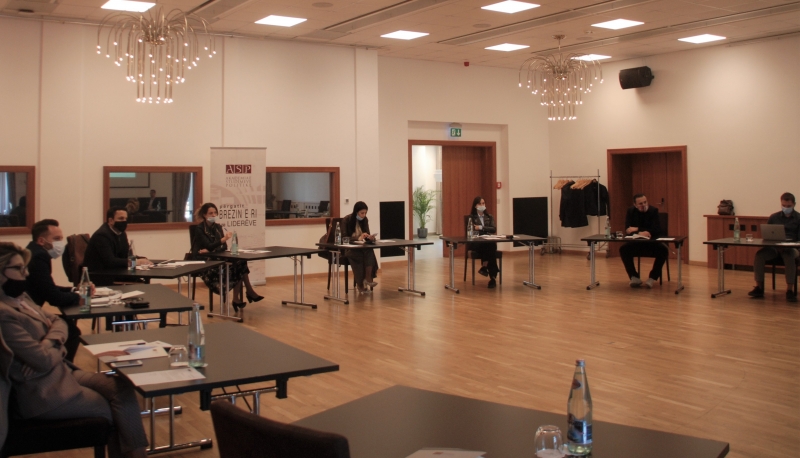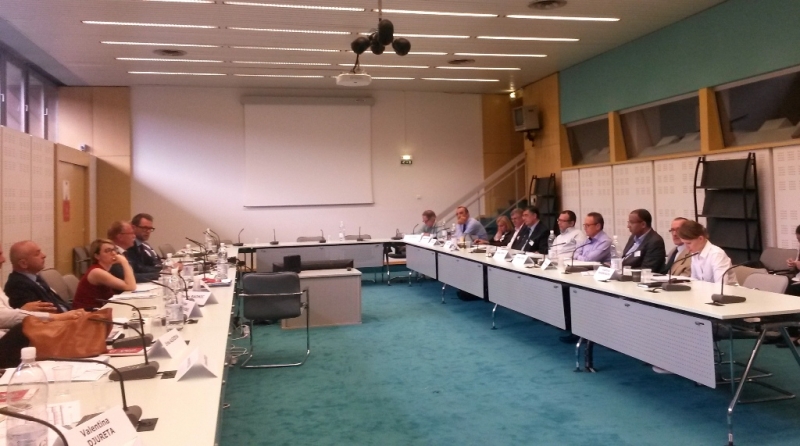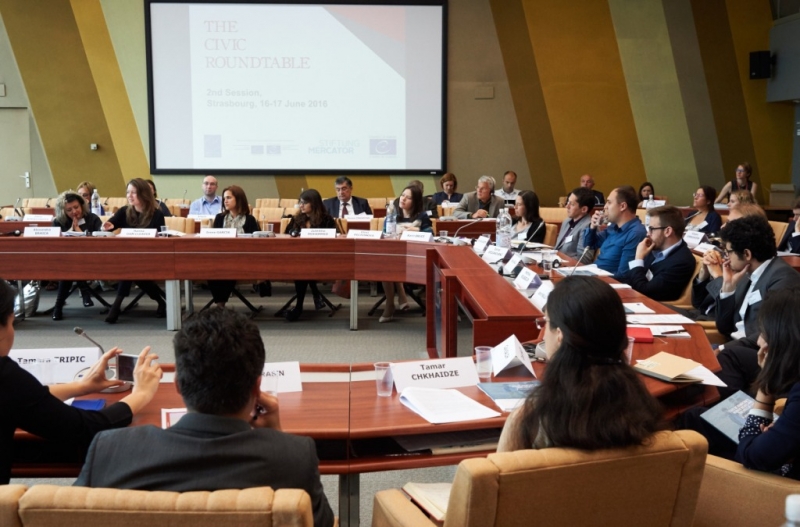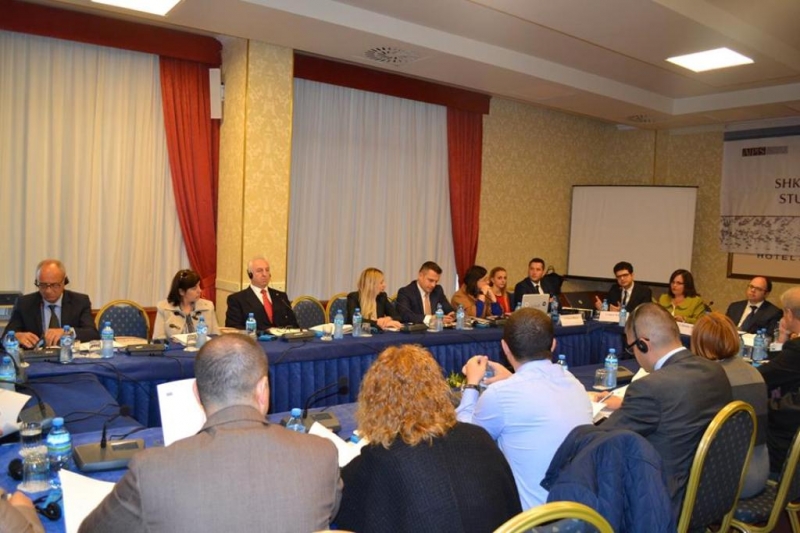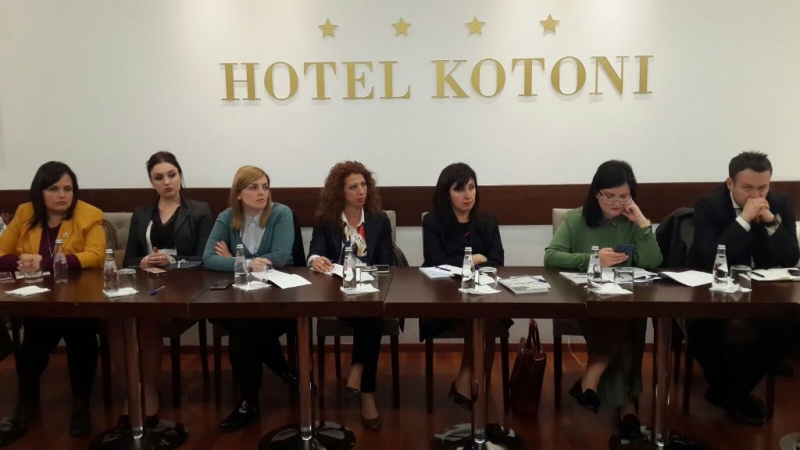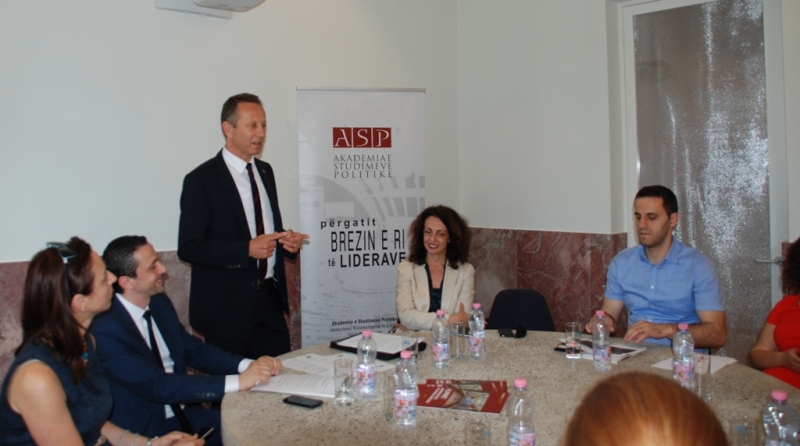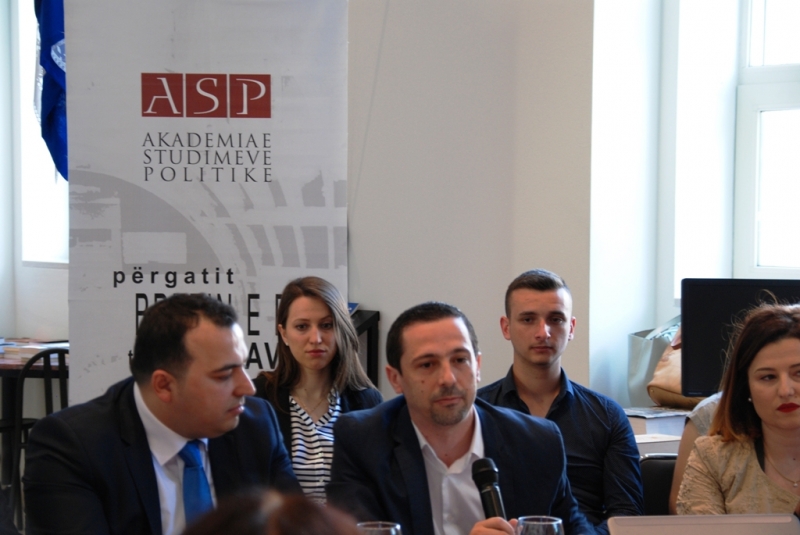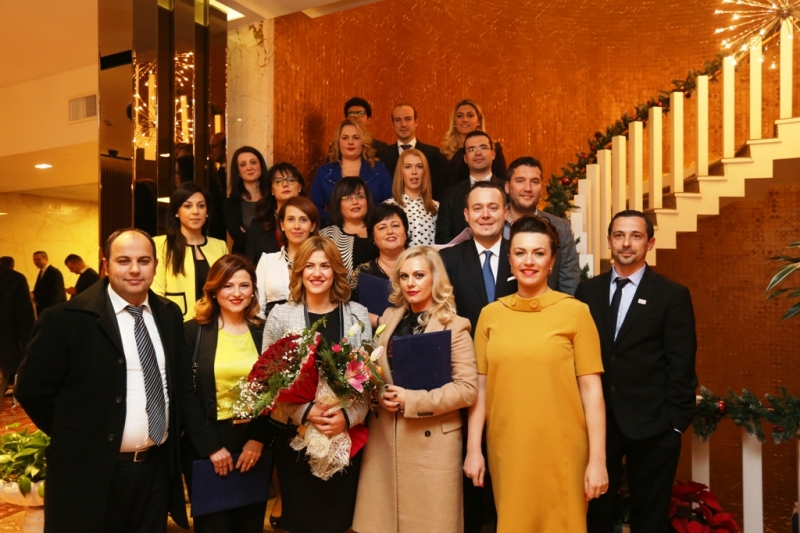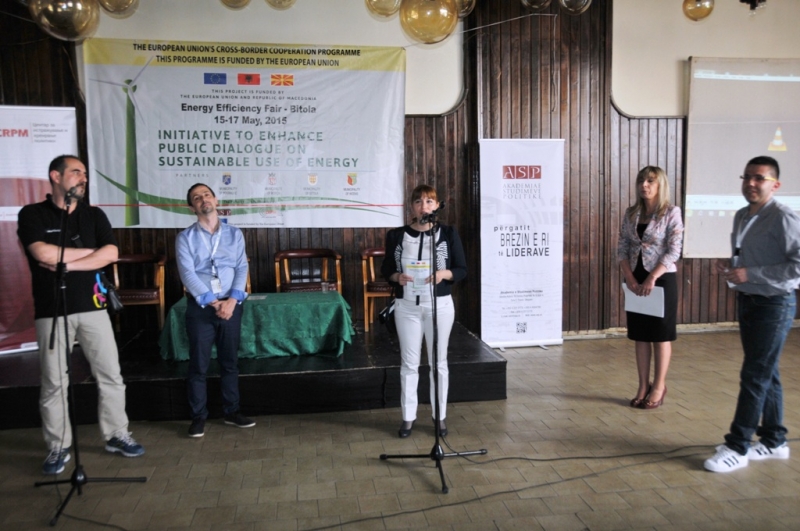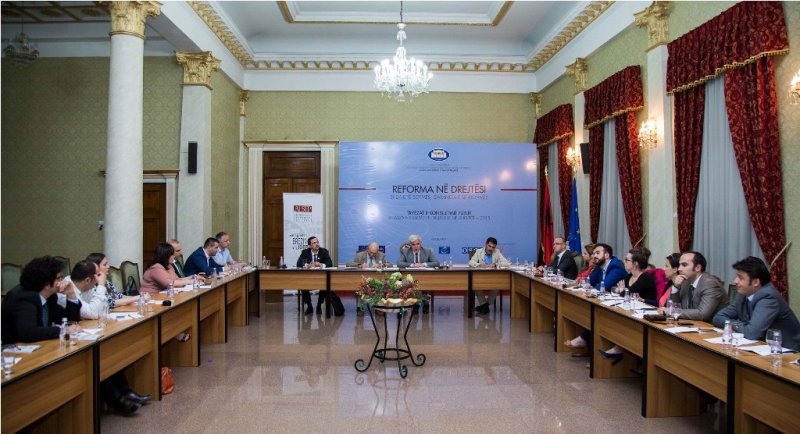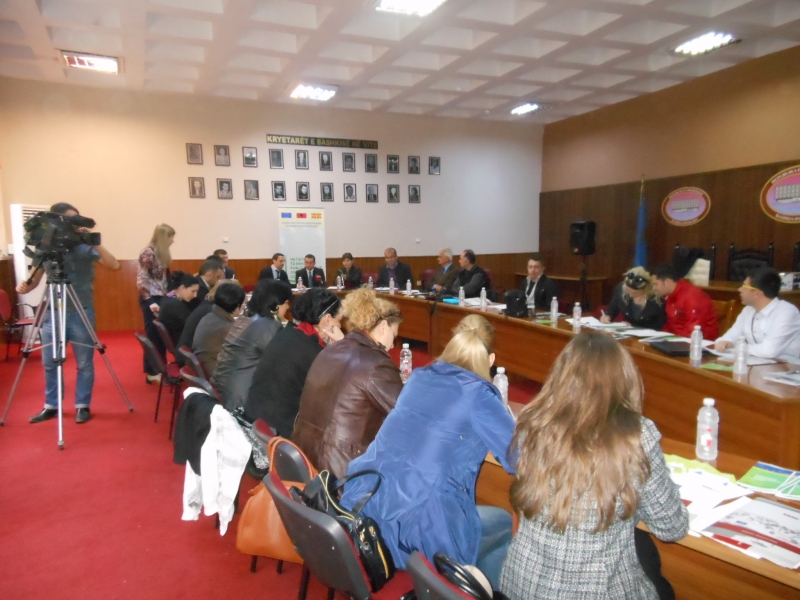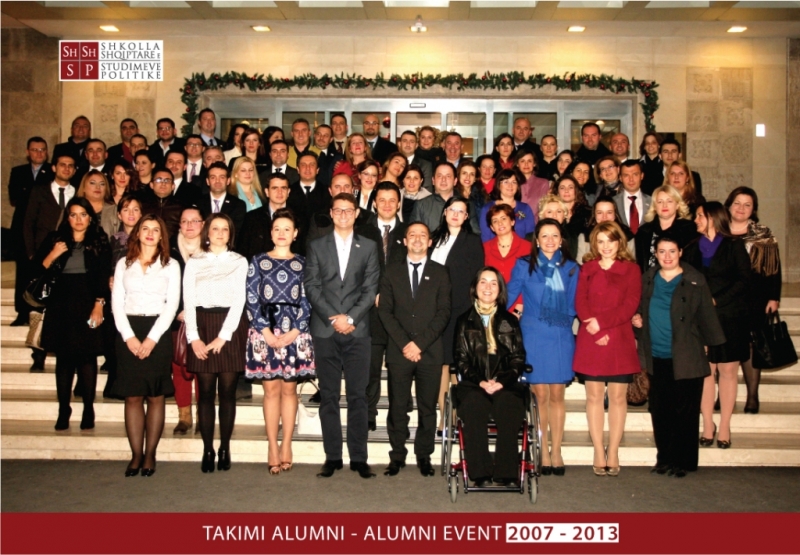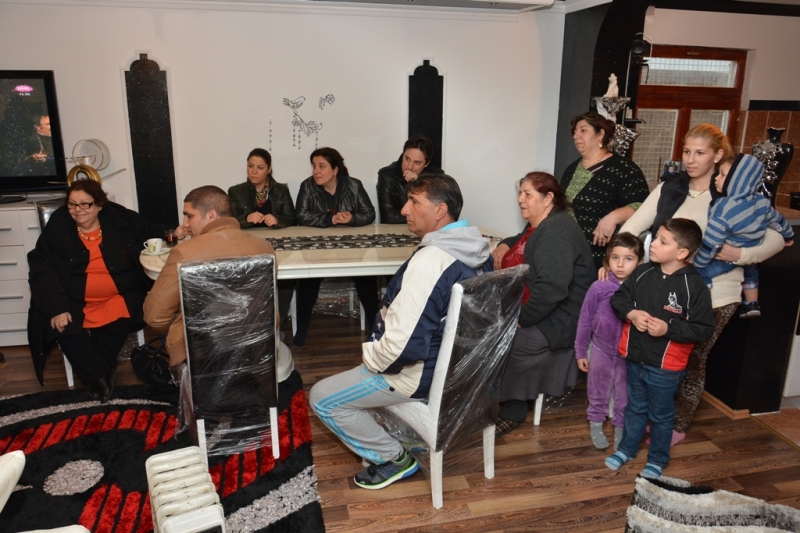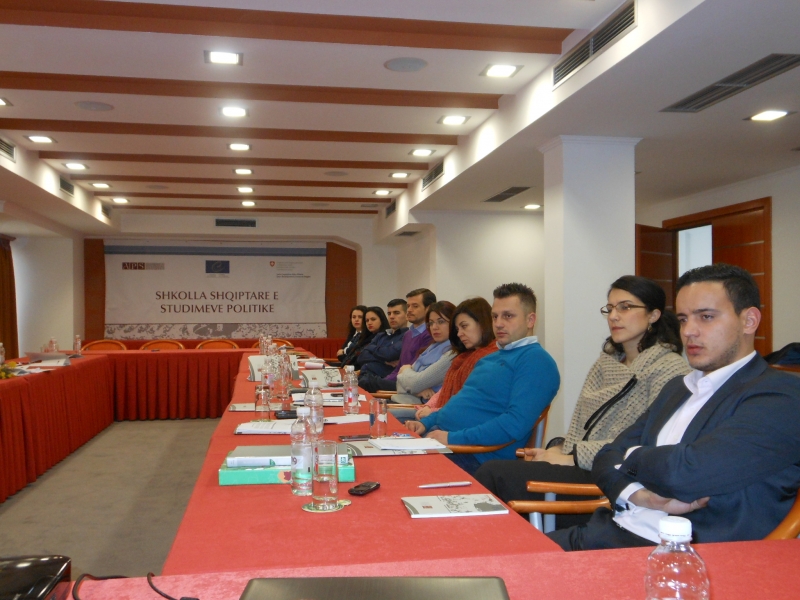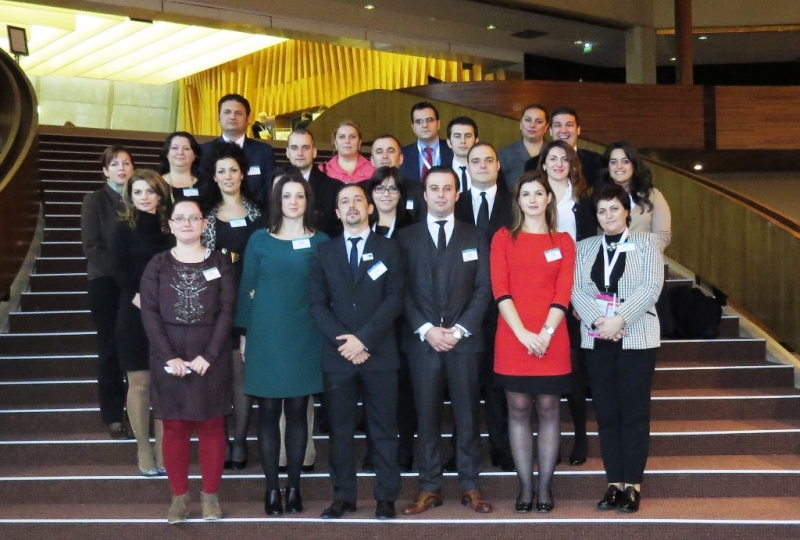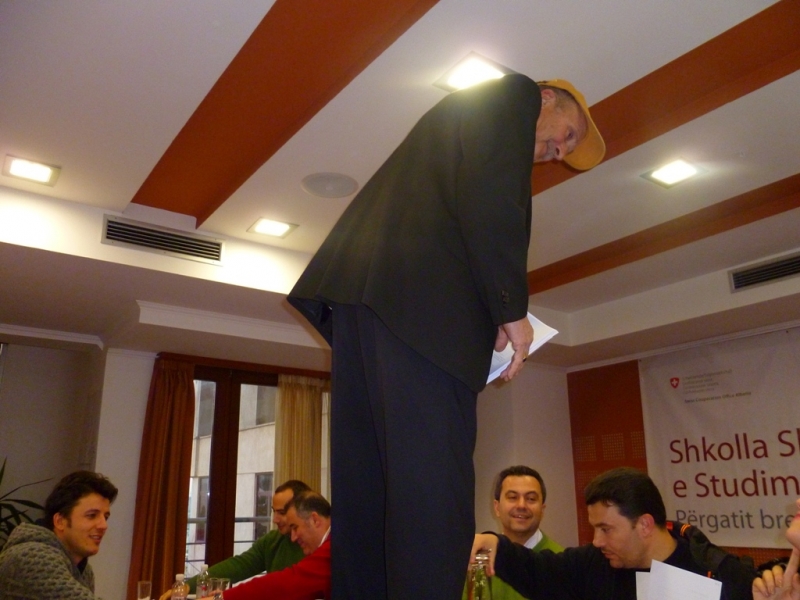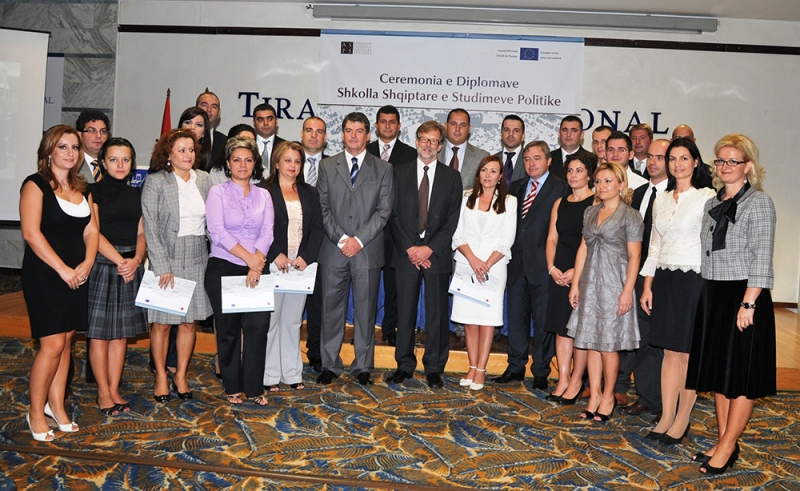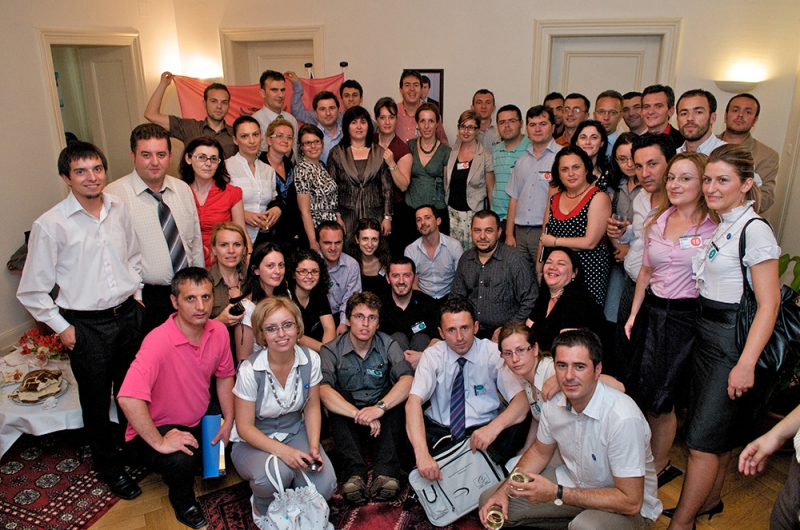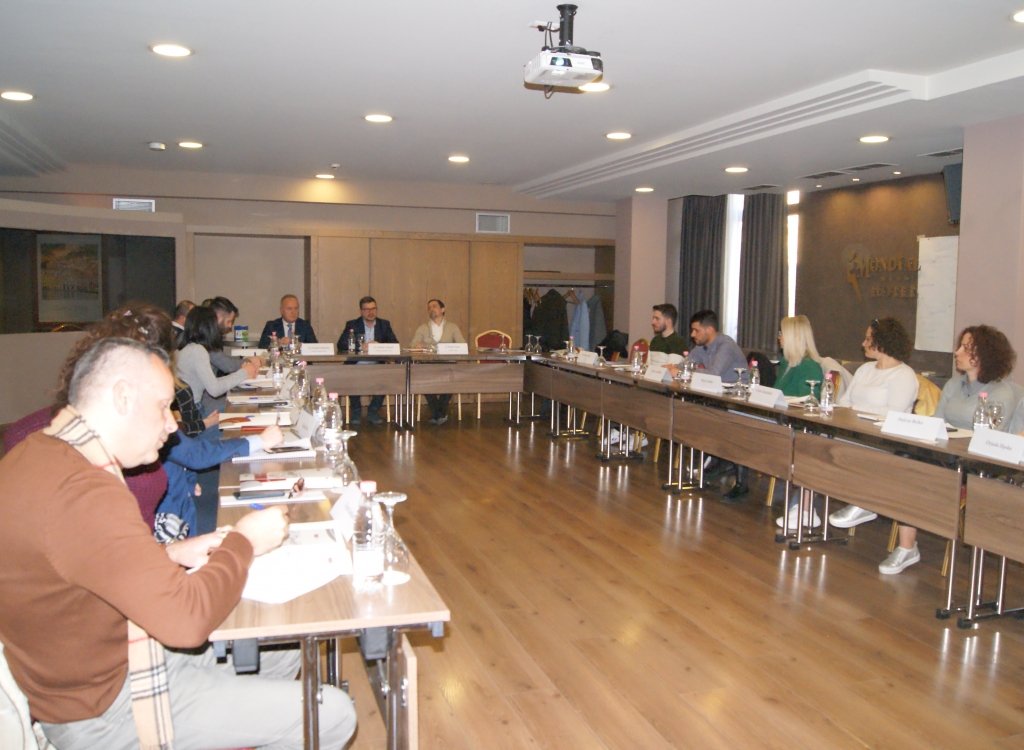
Friday, February 11, 2022
On 11-12 February 2022 took place Module 1 of the School for Consumer Protection and the European Integration, component of the project “From Information to Action – Strengthening the role of CSOs in Albania on Consumer Protection” that is being implemented by European Movement Albania in cooperation with the Academy of Political Studies and the Alert Center, with the financial support of the European Union under IPA funds 2017.
Module 1 physically conducted in Tirana, was attended by around 20 participants of the School and had as the main topic “Consumer protection legal framework and instruments: International agencies, conventions and treaties in protecting consumers” The first two sessions held on Friday, February 11 were led by Ersida Teliti, Executive Director of the Center “Albanian Consumer”.
During the first session she focused on three main pillars: the evolution of the concept of consumer protection, European practices for consumer protection and consumer rights in Albania. In retrospect, in terms of the history of consumer protection development, Teliti brought to attention some of the first attempts made in this regard. She then elaborated on the factors that led to the formalization and development of this field, such as unfair competition and focus on quantity of production by bypassing quality, thus harming the consumer. A comprehensive and robust legal and institutional framework is needed to ensure effective consumer protection, followed by the promotion of information and consumer rights and the strengthening of cooperation between states and international instruments. Thus, in terms of consumer protection at the international level, Teliti mentioned a number of legal provisions as well as institutional aspects that accompany it. Among them, the United Nations – Guidelines for Consumer Protection, brings a set of principles that guarantee consumer protection. At the European level, there are challenges and legal and information gaps, although EU jurisprudence in this area is very broad and efforts have been made to define the concepts like vulnerable or average consumer, as well as lack of cooperation and implementation of legal provisions. To conclude the presentation, Teliti introduced the New EU Consumer Agenda for 2020-2025 and the priority areas covered by it related to digitalization and online commerce, environmental protection, personal data protection and alternative dispute resolution methods.
During the second session, Teliti focused on consumer legal relations and the challenges faced by the Albanian state. Describing the legal basis as the foundation of consumer protection, Teliti emphasized the purpose of consumer protection and explained the elements of consumer legal relations. She then pointed out that the purpose of the LCP is to protect the interests of consumers in the market, as well as to establish rules and establish relevant institutions to protect the rights of consumers. To make this more practical, Teliti underlined some basic principles of why the consumer should be protected. To conclude, she focused on explaining the rights of consumers and the obligations of traders by identifying a number of institutions and organizations responsible in the country for developing and implementing consumer protection policies.
Saturday, February 12 began with the unfolding of sessions 3 and 4 held by Julian Llupo, Director of the Directorate of Product Safety at the Ministry of Finance and Economy. The focal points of his discussion during the third session was on the domestic legal framework and the institutional framework for consumer safety and protection. All this, while identifying the institutions that operate according to special legislation, where the Commission for Consumer Protection as a structure within the MFE is the main institution. Llupo drew attention to the competencies of various structures operating in the field of consumer protection by analyzing that in order for CCP to be more effective it would be more appropriate to be an independent institution and to have inspection responsibilities, which the law has not predicted. Llupo also mentioned the occurrence of violations of various types that are noticeable in these structures and held discussions that questioned the way and how functional these structures are.
During the fourth session, in continuation of the previous session, the keynote was the approximation of domestic legislation with the Acquis of the EU. Llupo underlined the obligations arising from the integration process in terms of legislation regulating the free movement of goods and the production of safe products as well as EU standards which must be attained in this context. Further, he identified the manufacturer as the most important link in the chain of products trade that guarantees their safety. Implementation of procedural steps before placing the product on the market by the manufacturer, protects the consumer from the damage that products that do not pass all these steps of this process can cause. Furthermore, Llupo mentioned the ongoing controls that products on the market must undergo starting from those of physical, documentary and laboratory analysis. In case of non-compliance with the appropriate standards, he stressed a series of measures that the responsible institutions are obliged to take. Meanwhile, here he mentioned the challenges faced by MS as consumer protection is a new field and is undergoing constant changes. At the end of his speech, Llupo said that in the approximation of the legislation of Chapter 1, Albania has a comparability with the region and many acts are in the process of approximation, while Chapter 28 requires further effort and work. In relation to Chapter 1 he underlined that there are 28 acts adopted by the government that have transposed EU laws on specific products. A problem according to Llupo for products in Albania to be certified according to EU standards they must be checked by a European (non-Albanian) authority, but this can only happen after they have been produced. He added that the country has shown a similar performance with North Macedonia.
The fifth session was held by Mr. Granit Sokolaj, Director of the “Alert” Center, who delivered his presentation on informing the consumer about the creation of a security chain. Sokolaj, focused on the general principles, requirements and key responsibilities governing food information and, in particular, the labeling of food products. He further highlighted the requirements governing mandatory food information as well as fair information practices. Sokolaj also focused on the legal provisions regarding non-food products by listing a series of such products and the information that is mandatory to be attached to them, giving practical advice on how this information should be read and understood by the consumer. Sokolaj then focused on distance selling and mainly on the information that the consumer must possess before signing a distance contract or a contract outside the malls.
The sixth session was envisaged as a practical session where participants would be involved in discussions among themselves on the techniques and methods used for information and awareness campaigns for consumers. During the session held as an informal discussion between participants and lecturer Sokolaj issues such as problems with online shopping, labels of food and non-food products, practical cases of high risk products and the difference between safety and quality were addressed thoroughly. The safety of a product is an indisputable criterion for the European Union, while its quality can always vary without compromising safety elements. In terms of online trade it is still undisciplined and the consumer is at risk, as in Albania there are about 1500 online sites (most of them are illegal) that sell and buy products, where most of them do not have NUIS, official site or contacts, and are mostly active on social networks.














